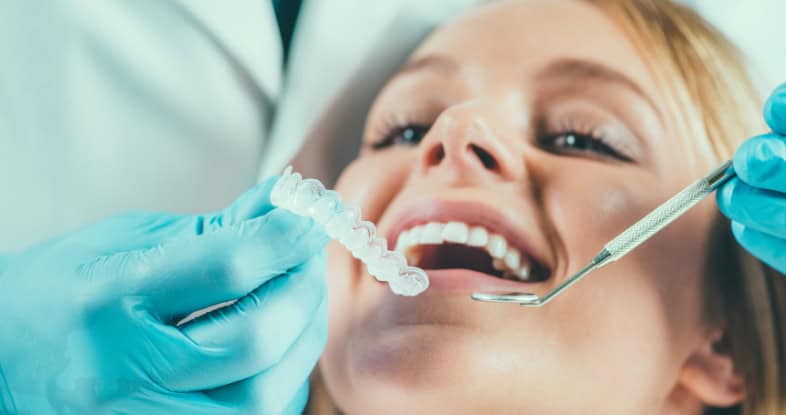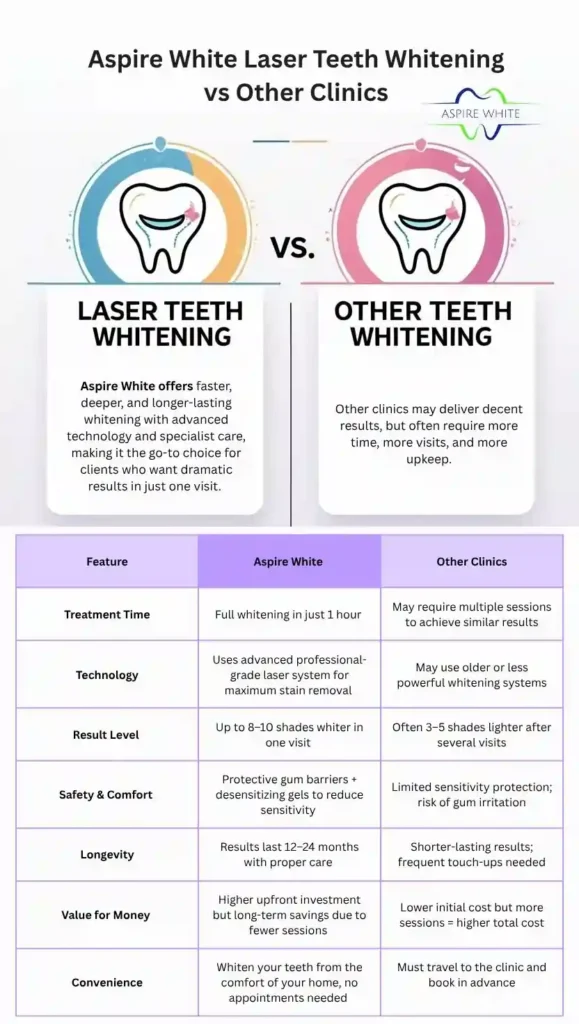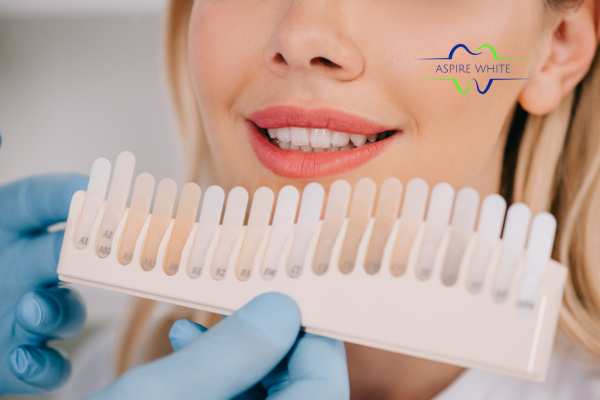Hormones play a bigger role in women’s health than most people realise — and that includes their oral health. Changes in oestrogen and progesterone levels can make gums more sensitive, affect the condition of the mouth’s tissues, and even influence how teeth react to plaque.
Hormone levels can shift during different stages of life—like the menstrual cycle, pregnancy, or menopause—and you may notice your gums becoming swollen, bleeding more easily, or feeling extra sensitive.
At Aspire White Aylesbury, we know that a bright smile takes more than just brushing twice a day. It’s about adjusting your dental care to align with your body’s hormonal changes. See Here Laser Teeth Whitening and Receding Gums: Challenges and Considerations
That’s why our at-home laser teeth whitening system is designed to be gentle, safe for your enamel, and effective at every stage of life—from your teenage years right through to post-menopause.
Why does my Oral health seem to waver with my cycle Aylesbury—what’s going on?
Throughout your menstrual cycle, your progesterone levels fluctuate. During the luteal phase (the days after ovulation), progesterone increases blood flow to the gums, which can make them feel swollen, tender, or more prone to bleeding.
You may have perfect oral health yet still notice this monthly change — it’s hormonal, not hygienic failure.
Aspire White Aylesbury tip: Our peroxide-free LED-laser whitening system is designed to work even during sensitive phases, so you can keep your smile stain-free without triggering extra gum irritation.
Could these swollen or bleeding gums be hormonally driven—and what can I do about it?
Yes — you could be experiencing hormonal gingivitis, a common condition where oestrogen and progesterone shifts make gums more reactive to everyday plaque. This is especially common during:
- Ovulation
- Early pregnancy
- Pre-menstrual days
To manage this, focus on:
- Gentle brushing with a soft-bristle toothbrush
- Daily flossing
- Avoiding abrasive whitening pastes
Why Aspire White Aylesbury works here: Our LED-laser technology whitens deep stains without harsh scrubbing, making it ideal when gums are already slightly inflamed or tender.
Is pregnancy wrecking my teeth Aylesbury—or is there a more innovative way to protect my smile?
Pregnancy causes a surge in hormones, which changes your body’s immune response and can increase gum inflammation. Some women also experience “pregnancy tumours” — harmless, temporary gum growths.
While pregnancy isn’t destroying your teeth, it does make your mouth more vulnerable to problems if you’re not extra careful. Check Out Can Good Gums Make Me Healthier?
Aspire White Aylesbury advice:
- Keep up with professional dental check-ups
- Use a gentle, enamel-safe toothpaste
- Postpone whitening until your dentist confirms it’s safe
Our at-home laser whitening system can be started before pregnancy or resumed afterwards, so you can keep your smile bright without risking your or your baby’s health.

Menopause approaching—will my changing hormones wreak havoc on my oral health?
During menopause, oestrogen levels drop, which can lead to:
- Dry mouth (less saliva to protect teeth)
- Increased gum disease risk
- Changes in taste
- Greater tooth sensitivity
Saliva plays a vital role in neutralising acids and keeping enamel strong, so dry mouth can accelerate enamel wear and tooth decay.
Our LED-laser whitening kits are designed to work without dehydrating the mouth — unlike some whitening strips or gels that can worsen dryness. That means you can refresh your smile while managing menopausal oral changes.
Could birth control or hormone therapy be silently contributing to my gum issues?
Yes — oral contraceptives and HRT (hormone replacement therapy) both influence oestrogen and progesterone levels, which in turn can make gums more sensitive. You might notice gum swelling or light bleeding within weeks of starting a new prescription.
This doesn’t mean you should stop — but it does mean you should:
- Watch for changes in gum colour, swelling, or bleeding
- Use non-irritating whitening methods like Aspire White’s
- Maintain regular dental check-ups
Our at-home whitening kits are ideal here because they’re customised to be gentle on gum tissue while still delivering professional-level results. See Here Is Whiter Teeth More Important Than Good Dental Health?
How do I maintain a radiant smile whether I’m menstruating, pregnant, or in menopause?
The key is consistency and adaptability. Your oral care routine should evolve with your hormones.
- Menstrual phase: Focus on gentle cleaning to avoid aggravating swollen gums.
- Pregnancy: Prioritise Oral health and enamel protection.
- Menopause: Increase hydration and choose dry-mouth-friendly whitening products.
Aspire White’s LED-laser system lets you whiten at your own pace, pausing when needed and resuming when your mouth feels comfortable—ensuring your smile stays bright year-round.
What unique oral care solutions does Aspire White Aylesbury recommend for every hormonal phase?
Oral care should adapt to your body, not force it to adjust to harsh treatments. Here’s our approach:
- Menstrual cycle – Use gum-friendly whitening to stop stains from building during sensitive days.
- Pregnancy – Delay whitening until your dentist approves; focus on gum care and enamel protection.
- Morning sickness phase: Rinse before brushing; resume whitening only when enamel is stable.
- Menopause – Keep your mouth hydrated and refresh your smile with non-drying whitening kits.
- Hormone therapy users – Monitor Oral health and choose low-irritation whitening systems like Aspire White’s Aylesbury.
Our at-home laser whitening treatment is designed to be safe, flexible, and effective for women at every hormonal stage — so your smile stays brilliant no matter what your hormones are doing.
For The Further Information, don’t hesitate to get in touch with us here today.Contact Us





